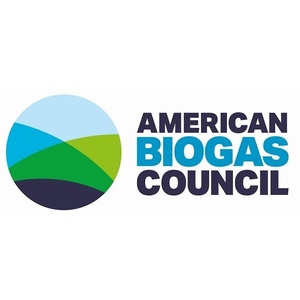
American Biogas Council submits Renewable Fuel Standards comments to EPA
February 14, 2023
By American Biogas Council

The American Biogas Council (ABC) submitted comments to the U.S. Environmental Protection Agency (EPA) proposed “Set Rule” regarding the Renewable Fuel Standard (RFS). The proposed rule includes long-awaited guidance in a couple key areas plus multi-year fuel volumes for renewable electricity and renewable natural gas (RNG) made from biogas.
“The ABC is pleased to see three years of renewable fuel volumes proposed for 2023-2025,” said Patrick Serfass, executive director, ABC. “Of the 2,300 biogas systems currently operational in the U.S., 2,000 of them produce uninterruptible renewable electricity and nearly 280 produce RNG. This guidance from the EPA creates an opportunity for these projects as well as new ones to generate RFS credits (RINs) while also helping to decarbonize transportation and increase the volume of organic material that we recycle in the U.S. In the end, this will benefit the everyday American – those living and working on or near farms, food processors, and wastewater plants of all sizes.”
The ABC believes the RFS has helped to drive growth for the fast-growing U.S. biogas industry which has seen some sectors grow at over 40 per cent annually. For that reason, we want to ensure the RFS continues to function well and urge the EPA to finalize the Set Rule, on time, by June 14. The ABC believes this is a major step forward in many ways, and supports many elements that will help accomplish the goals of the RFS, including:
- EPA’s recognition that the overwhelming majority, over 95 per cent, of cellulosic biofuel proposed to be produced from 2023-2025 – 719 million gallons for 2023, 1,419 million for 2024 and 2,131 million for 2025 – will be derived from biogas;
- Creation of a proposed regulatory framework for the renewable electricity pathway which will allow biogas electricity projects to thrive across the US, especially at small and medium sized farms, wastewater plants, and stand-alone food waste recycling plants;
- Creation of a proposed regulatory framework to add food waste and D5 RINs to manure and wastewater biogas systems without devaluing the D3 RIN value these projects produce. This methodology should help remove one of the largest barriers to increasing food waste recycling in the US; and
- EPA’s recognition of biogas as a cellulosic feedstock of the future. The proposed rule points to additional fuels that can be made with biogas as the feedstock, and we are very supportive of these additional uses for biogas.
The ABC also submitted the following concerns to the Agency:
- Undercounting growth: The RNG sector of the U.S. biogas industry, the same sector that currently makes up the overwhelming majority of the D3 cellulosic biofuels, has been growing at an annual rate of 20-47 per cent for the last two years. EPA’s estimate of 13 per cent growth in that context is much too low and risks crashing the value of RINs. The ABC requests at least a 20 per cent annual increase in the RNG sub-volumes for cellulosic biofuel to recognize demonstration and expected continued growth in this sector of the biogas industry, and also a mechanism to adjust the fuel volumes upwards in the case of stronger than expected growth in biogas-related fuel production.
- Electronic vehicle (EV) original equipment manufacturers (OEMs) generating RINs in the biogas to renewable electricity pathway: By proposing to allow OEMs to generate RINs from biogas-electricity projects, besides being a major departure from the precent of the biogas producer generating the RIN, this reduces the number of potential RIN generators from hundreds to just a few and one big one representing about half the market. This risk of creating an effective monopoly in the system for well-functioning markets. Furthermore, biogas producers bear the largest costs of investment in this program. As such, a mechanism for biogas producers to also generate renewable electricity RINs should be created.
- The “discount” in the calculation of food-waste-related (D3/D5 apportionment) is two to three times to high: The ABC was pleased to see a proposed methodology for apportioning RINs from both cellulosic and non-cellulosic feedstock in the same biogas system. However, the proposed discount in the value of the cellulosic RIN is at least twice as conservative as it should be.
- Biogas reforms: The ABC wants to ensure that the proposed biogas reforms do not place an undue burden on participants in the value chain. Additionally, the Council believes that EPAs new proposal regarding storage of biogas is misguided and needs to allow storage of fuel which registrations are being processed.
Biogas-derived fuels, like RNG and renewable electricity, are an important success story and brilliant examples of the industry growing to meet and serve important U.S. policy goals. Furthermore, the larger fuels industry is evolving to use more biogas to decarbonize other fuels like hydrogen, renewable diesel, sustainable aviation fuel and more. Biogas-derived fuels diversify domestic energy supplies, increase recycling, reduce environmental impacts, and create jobs. The biogas industry has grown significantly and is a critical feedstock for 21st century fuels. An RFS which embraces that reality will position the US. .for significantly enhanced environmental protection and economic growth.
Print this page
Advertisement
Stories continue below
Related
Tags